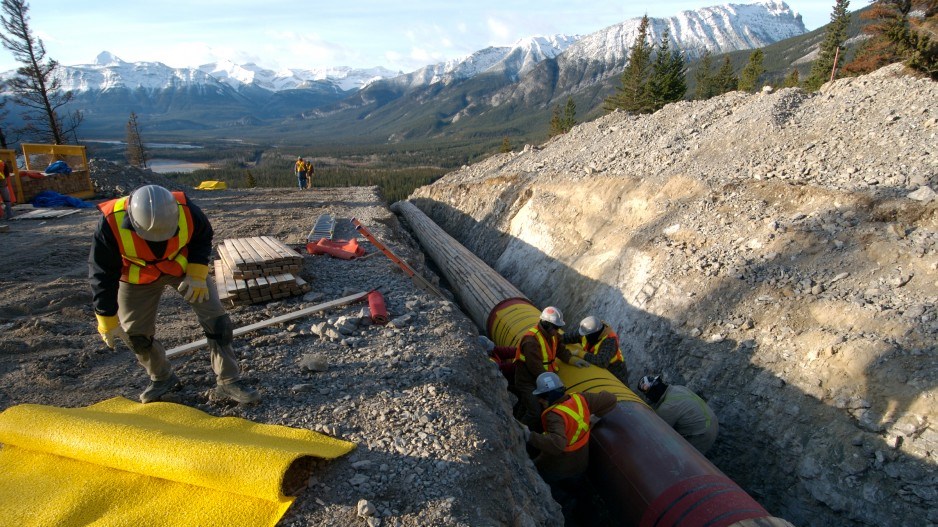In the , only 1% of voters considered energy and pipelines as the most important issue facing the country.
Electoral campaigns have a way of bringing our attention to specific matters that tend to be forgotten just days or weeks later. In 2015, a photograph of Alan Kurdi forced the contending parties in the federal election to discuss the Syrian refugee crisis. The topic has not been addressed as prominently in Canadian media, or in political circles, since then.
Energy and pipelines are not garnering the same attention that they did a few years ago, when meetings between western premiers and the federal government were carefully scripted and later analyzed in a Canada-wide setting. Some of the participants have also changed. In British Columbia, John Horgan now has a majority government and is more likely to be receiving criticism on the forestry file. In Alberta, Rachel Notley is now in opposition, while Jason Kenney presides the provincial administration with the in dealing with the COVID-19 pandemic.
When Research Co. and Glacier Media asked the province’s residents about the expansion of the Trans Mountain Pipeline earlier this month, 45% agree with the federal government’s decision to authorize the project, down seven points since last year. More than a third (35%, up six points) disagree with the decision, and 21% (up three points) are undecided.
Support for the pipeline expansion grows with age, from a low of 38% among British Columbians aged 18 to 34, to 43% among those aged 35 to 54 and to 51% among those aged 55 and over.
While majorities of residents of northern B.C. and southern B.C. endorse the decision to carry on with the expansion (60% and 54% respectively), the proportion is lower in Metro Vancouver (42%), the Fraser Valley (41%) and Vancouver Island (41%). British Columbians who voted for the BC Liberals are also more likely to be happy with the way thigs are going (64%) than those who cast ballots for the BC New Democratic Party (NDP) (41%) and the BC Green Party (32%) in last year’s provincial election.
The concerns that move public opinion to one side or the other persist, with more than two in five British Columbians believing the provincial government should do whatever necessary to ensure that the Trans Mountain expansion does not happen (41%, up one point) and saying that the expansion threatens the health and safety of British Columbians (47%, up three points).
Majorities of British Columbians continue to feel that the pipeline project will create hundreds of jobs 65% (down three points) and are disappointed in the way the federal government has handled this file (55%, down one point). At a time when gas prices are starting to become an issue for residents, only 36% expect the Trans Mountain Expansion to lead to lower costs at the pump, as an promised a couple of years ago.
During the federal election campaign, Conservative Party leader Erin O’Toole vowed to revisit the Enbridge Northern Gateway. This proposal to build a new pipeline from Alberta to British Columbia’s north coast, in order to export oil on tankers to Asian markets, was rejected by the federal government in November 2016.
British Columbians hold mixed views on this idea. Just over two in five (41%) agree with the notion of reconsidering the Northern Gateway, while one-third (34%) are not in favour and one in four (25%) are not sure about what to do.
The views of British Columbians on the Trans Mountain expansion are similar to where they were in 2019. Supporters outrank opponents by a small margin, and there is a significant number of residents who have not made up their minds. The numbers are also comparable on the idea of reviving the currently shelved Northern Gateway project. The plan may have helped the Conservatives reconnect with some voters, but it is too early to know if we will hear this message again from the current, and future, Leader of the Official Opposition.
Mario Canseco is president of Research Co.
Results are based on an online study conducted from October 1 to October 3, 2021, among 800 adults in British Columbia. The data has been statistically weighted according to Canadian census figures for age, gender and region in British Columbia. The margin of error, which measures sample variability, is plus or minus 3.5 percentage points, 19 times out of 20.

